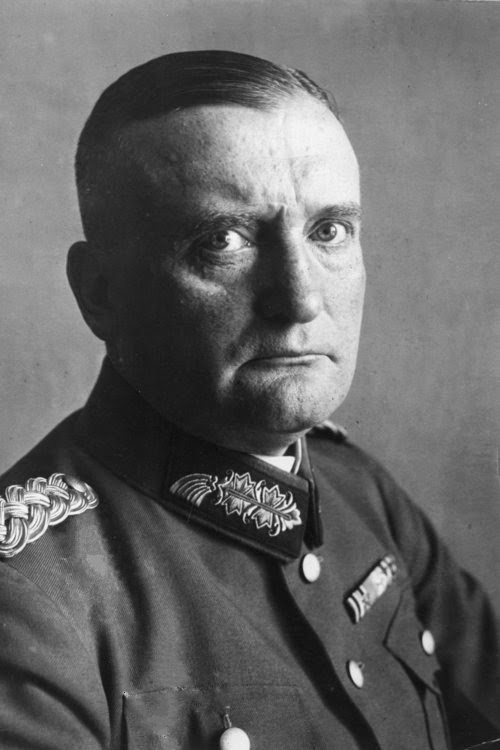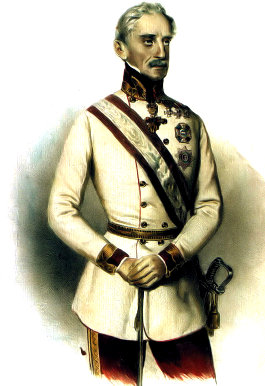Quotations
About Andrew Cusack
 Writer, web designer, etc.; born in New York; educated in Argentina, Scotland, and South Africa; now based in London.
Writer, web designer, etc.; born in New York; educated in Argentina, Scotland, and South Africa; now based in London. read more
News
Blogs
Reviews & Periodicals
Arts & Design
World
France
Mitteleuropa
Knickerbockers
Argentina
The Levant
Africa
Cape of Good Hope
Netherlands
Scandinavia
Québec
India
Muscovy
Germany
Academica
Regnum, Ecclesia, Studium
The threefold division of the world
As such he might be expected to have ideas about the idea of a university, and he wrote about them in The Spectator in August 1983.
Mister Grimond (as he still was then, only just), suggested those interested in the subject “might turn to a lecture by Ronald Cant, sometime Reader in Scottish History in the University of St Andrews”:
[…]
A vital aspect of this tripartite organisation, as Cant says, was that each should serve and support the other. But the studium, while interacting with the regnum and ecclesia, must maintain its independence.
It was certainly the business of the studium to advance knowledge, but that was not to be the end of the matter. Knowledge was linked to public service. The learned man had a duty to the community as well as a right to pursue his intellectual quarry. In fact he pursued the quarry on behalf of the community.
The tripartite division of the world, although old-fashioned, seems to me a useful concept, emphasising that government, morality, and higher education are separate but intertwined.
It seems to me that if we expel the regnum and the ecclesia utterly from the world of the university we shall end up paradoxically with universities totally dependent upon the state… but as subservient as those in Rome.
The liberal spirit gave birth and sustenance to universities; if its progeny does not foster it in the regnum they may indeed end up as purely vocational colleges.
De Gaulle on the Market

It forces people to stretch themselves, it gives a bonus to the best, it encourages you to surpass others and to surpass yourself.
But, at the same time, it creates injustices, it establishes monopolies, it favours cheaters.
So don’t be blind to the market. You should not imagine that it will solve every problem on its own.
The market is not above the nation and the state. It is the nation, it is the state which must oversee the market. »
Three Bedrooms in Manhattan



Helena at Bethlehem
He sent along this passage from Waugh’s novel Helena in which the saint (and mother of the Emperor Constantine) arrives at Bethlehem, the city of Our Saviour’s birth, on the very feast of the Epiphany. She addresses the Magi in prayer.
“Like me,” she said to them, “you were late in coming. The shepherds were here long before; even the cattle. They had joined the chorus of angels before you were on your way. For you the primordial discipline of the heavens was relaxed and a new defiant light blazed among the disconcerted stars.
“How laboriously you came, taking sights and calculations, where the shepherds had run barefoot! How odd you looked on the road, attended by what outlandish liveries, laden with such preposterous gifts!
“You came at length to the final stage of your pilgrimage and the great star stood still above you. What did you do? You stopped to call on King Herod. Deadly exchange of compliments in which there began that unended war of mobs and magistrates against the innocent!
“Yet you came, and were not turned away. You too found room at the manger. Your gifts were not needed, but they were accepted and put carefully by, for they were brought with love. In that new order of charity that had just come to life there was room for you too. You were not lower in the eyes of the holy family than the ox or the ass.
“You are my especial patrons,” said Helena, “and patrons of all late-comers, of all who have had a tedious journey to make to the truth, of all who are confused with knowledge and speculation, of all who through politeness make themselves partners in guilt, of all who stand in danger by reason of their talents.
“Dear cousins, pray for me,” said Helena, “and for [the generally believed still unbaptized Emperor Constantine] my poor overloaded son. May he, too, before the end find kneeling-space in the straw. Pray for the great, lest they perish utterly. And pray for… the souls of my wild, blind ancestors…
“For His sake who did not reject your curious gifts, pray always for the learned, the oblique, the delicate. Let them not be quite forgotten at the Throne of God when the simple come into their kingdom.”
Problems and Solutions

There are in some periods problems to which no solutions exist.”
How to deal with ‘Direct Action’
A lesson from the experienced generation of not so long ago
BRITONS have a habit of being slow to move initially but they do get their act in order sooner or later — and usually in time to prevent disaster. Many in the metrop. have been damned irritated that the police seemed impotent when the fascist death cult “Extinction Rebellion” first reared its ugly head.
“XR” prevented working-class Londoners from getting to work on the Underground and seized bridges to publicise their claim that — despite global agricultural yields being higher than ever before in human history — we are somehow all going to be starving in a few years’ time due to “climate catastrophe”.
Nonetheless, having returned from Guernsey this morning, I find the streets of London pleasantly filled with the flying squads of the Metropolitan Police. The boys in blue are moving about in rapid response units, ready to deploy immediately whenever and wherever the Extincto-Nazis rear their ugly heads, thus keeping the streets open to all comers (bar those with nefarious designs of un-civic disorder).
“XR” are not the first to threaten (nor to deliver) “direct action”, but I was heartened when a friend shared this splendid example of how to deal with irate students allegedly delivered by the Warden and Fellows of Wadham College, Oxford, in 1968:
Dear Gentlemen,
We note your threat to take what you call ‘direct action’ unless your demands are immediately met.
We feel it is only sporting to remind you that our governing body includes three experts in chemical warfare, two ex-commandos skilled with dynamite and torturing prisoners, four qualified marksmen in both small arms and rifles, two ex-artillerymen, one holder of the Victoria Cross, four karate experts and a chaplain.
The governing body has authorized me to tell you that we look forward with confidence to what you call a ‘confrontation,’ and I may say, with anticipation.
This was less than a quarter-century after the victory of the Second World War, so Wadham could call upon an experienced gang to fill the ranks of its fellowship in those days.
I suppose Maurice Bowra was Warden of Wadham at this time. While a renowned buggerer, he did manage to die with a knighthood, a CH, and the Pour le Mérite (civil class) — which is not a bad innings all things considered.
‘Apostle of a Monstrous Trinity’

Hammerstein’s Four Types
Speaking to a friend the other day, I mentioned this quotation which is often incorrectly attributed to Rommel (including by me).
The actual source of these words is Kurt von Hammerstein-Equord, a four-star general of the German army, who described the four types of officer and their place along the axes of being 1) either clever or stupid, and 2) either hardworking or lazy.
There are clever, hardworking, stupid, and lazy officers. Usually two characteristics are combined.
Some are clever and hardworking; their place is the General Staff.
The next ones are stupid and lazy; they make up ninety percent of every army and are suited to routine duties.
Anyone who is both clever and lazy is qualified for the highest leadership duties, because he possesses the mental clarity and strength of nerve necessary for difficult decisions.
One must beware of anyone who is both stupid and hardworking; he must not be entrusted with any responsibility because he will always only cause damage.”
I am sure the experience of many would confirm that Hammerstein’s typology is also applicable in the civilian world.
Hammerstein was a brave man, who unsuccessfully attempted to see President Hindenburg personally in the hopes he would intervene to stop the massacre on the Night of Long Knives.
 His friend and regimental comrade General Kurt von Schleicher, the last Chancellor of Germany before Hitler’s appointment, was among those murdered on the evening and Hammerstein defied army orders by attempting to attend Schleicher’s funeral only to be stopped by the SS.
His friend and regimental comrade General Kurt von Schleicher, the last Chancellor of Germany before Hitler’s appointment, was among those murdered on the evening and Hammerstein defied army orders by attempting to attend Schleicher’s funeral only to be stopped by the SS.
Nonetheless, his reputation and skill ensured he was given command during the war, although Hitler later personally dismissed him for his opposition to national socialism.
As Hammerstein was dying of cancer in 1943 he told the art historian Udo von Alvensleben-Wittenmoor: “I am ashamed to have belonged to an army that witnessed and tolerated so many crimes”.
His family refused to allow Hammerstein to be buried with a military funeral as it would have meant his remains being draped in the swastika flag.
Despite being a conservative Protestant nobleman of the old school, two of his five children ended up as communists, though his youngest son became a Protestant theologian.
Portugal in the 1950s
I felt as if I were going from a noisome prison out into the morning air in the countryside. … After the clangor and tension [of New York], and so many faces taut or ugly or vicious, life in Portugal might be unaffluent but it was still quiet, still kindly, still human. The lack of development and the poverty struck one as a blessing. The absense of advertisers and of mass media men and of vote-catching politicians, bawling out their meretricious wares, was like relief from the presence of the demented.
via R.J. Stove
“Nothing between the insulting and the superlative…”
« In the restaurant on the Rue Saint-Augustin, M. Mirande would dazzle his juniors, French and American, by dispatching a lunch of raw Bayonne ham and fresh figs, a hot sausage in crust, spindles of filleted pike in a rich rose sauce Nantua, a leg of lamb larded with anchovies, artichokes on a pedestal of foie gras, and four or five kinds of cheese, with a good bottle of Bordeaux and one of champagne, after which he would call for the Armagnac and remind Madame to have ready for dinner the larks and ortolans she had promised him, with a few langoustes and a turbot — and, of course, a fine civet made from the marcassin, or young wild boar, that the lover of the leading lady in his current production had sent up from his estate in the Sologne.
“And while I think of it,” I once heard him say, “we haven’t had any woodcock for days, or truffles baked in the ashes, and the cellar is becoming a disgrace — no more ’34s and hardly any ’37s. Last week, I had to offer my publisher a bottle that was far too good for him, simply because there was nothing between the insulting and the superlative.” »
Georg Christoph Lichtenberg
 « I ceased in the year 1764 to believe that one can convince one’s opponents with arguments printed in books. It is not to do that, therefore, that I have taken up my pen, but merely so as to annoy them, and to bestow strength and courage on those on our own side, and to make it known to the others that they have not convinced us. »
« I ceased in the year 1764 to believe that one can convince one’s opponents with arguments printed in books. It is not to do that, therefore, that I have taken up my pen, but merely so as to annoy them, and to bestow strength and courage on those on our own side, and to make it known to the others that they have not convinced us. »Metternich: Ex Ordine Libertas

Fürst von Metternich-Winneberg-Beilstein
From the memoirs of Miklos Banffy
« After getting home I must admit that I slept soundly, although occasionally, when still half-asleep, I seemed to hear more rumbling of heavy lorries passing under my windows than on previous nights. However, since the street outside was the habitual route for deliveries to the market halls nearby, and the market cars had always rattled past noisily long before dawn, it did not seem to be different from any other night in the year.
It was only later that I heard what had happened early that morning. When my old valet called me he announced three things: my bath had been prepared, revolution had broken out, and Count Mihály Károlyi was now Minister-President. »

Pink champagne & civil war
In “Neither a Lender Nor a Borrower Be” from the October New English Review, Theodore Dalrymple discusses his own first-hand encounter with the lending crisis:
With a large loan outstanding, I continued to receive, about every month or so, offers of a further loan of $50,000, no questions asked and mine for the borrowing by mere telephone call, just in case there were any little extras or extravagances I happened to feel like treating myself to (but apply now, before next month’s offer of precisely the same thing!). The principal example given of the little extras or extravagances to which I might want to treat myself was the holiday of a lifetime.
Two considerations led me to turn down all these kind offers. The first is that my taste in holidays of a lifetime runs more to observing civil wars than to lolling in the lap of luxury, and while sometimes expensive to go to, civil wars offer little in the way of sybaritic possibilities (though there was a surprising availability of pink champagne during the Liberian civil war, even if it was difficult to chill).
Words of Windisch-Grätz Wisdom

Prince of Windisch-Grätz
on the liberal constitutionalist rebels
Mussolini (in his own words)
A Selection of Quotations from Il Duce

“The Socialists ask us for our program?
Our program is to smash the heads of the Socialists.”
Mussolini himself had been a very prominent Socialist, working for leftist newspapers and was even once deported from Italy when his anti-Catholicism and anti-royalism became too much for the authorities to handle. (more…)
Republicanism is a traitor’s game

I listen to all these republicans…
If it was down to me I’d hang ’em! I honestly would. It’s a traitor’s game for me.”
SO SPEAKETH Sir Ian Botham, on this occasion to the Guardian, the newspaper of the British ruling class. It’s always reassuring when a public figure speaks out in support of the few remnants of tradition the metropolitan elites allow us to retain, so Sir Ian deserves a firm handshake, a pat on the back, and a pint on the house. Still, there are others (poor souls!) who disagree with the goodly knight. Herein the British Republican movement lists its supporters. They are mostly relative unknowns, except for the former Viscount Stansgate and the rather vulgar Peter Tatchell.
Leanne Wood, a member of the Welsh Assembly, states “I am a republican because I am opposed to the hereditary system”. Opposed to the hereditary system? We presume, therefore, that when she reaches the evening of her years (after a long life sucking off the taxpayer teat) she will not leave her comfortable residence and all her earthly possessions to her offspring, but instead donate them to the Fabian Society. Pity her poor children!
“I believe,” Ms. Wood continues, “in equality not patronage”. To my mind, party politics is more often a source of patronage than the limited constitutional monarchy. As for equality, doesn’t being a member of the Welsh Assembly give her more power and influence than others? Not very egalitarian, but then there are no true egalitarians. Only some who, rather than appreciating the heights of Western civilization, prefer to topple it to the ground in order to establish greater “equality”.
The former Viscount Stansgate, who currently styles himself “Tony” Benn, proclaims that “In a democracy people must be able to elect their own head of state”. The demos beg to differ. The Crown has consulted the people in forty-four different general elections since the enactment of the Reform Act of 1832, and yet the voters have curiously neglected to ever vote a republican party into government.
Mr. Tatchell, meanwhile — whom the Republican movement identifies as a “gay rights and human rights campaigner” (I am glad they concede the dissimilarity in the two concepts) — tells us that “Britain remains a partial, incomplete democracy, steeped in aristocratic privilege.” Hear! Hear! “Why can’t we have a complete, mature democracy,” Mr. Tatchell asks, “where the people elect our Head of State?” Perhaps because democracies which elect their head of state are rarely mature. It seems entirely more mature to keep those institutions which have stood the test of time rather than to arbitrarily destroy them based on what amounts to little more than modish management concepts.
Curiously, at least three people on the Republican movement’s list of supporters are Queen’s Counsel (QCs, or “silks”). They are not so opposed to the monarchy as to refuse the fruits of its munificence, and for that we should praise their pragmatism. Even more curiously, however, nineteen on the list are Members of Parliament. Surely MPs are required to take an Oath of Loyalty to the Crown in order to take their seats? But then perhaps these nineteen are abstentionists along the lines of the Sinn Féiners. While one hesitates to presume to advise the Crown, it might be useful every so often to inquire among the members of Parliament as to which would lend their votes to the abolition of the monarchy, and then deal with them in the manner Sir Ian Botham profers.
“If it was down to me I’d hang ’em!”
Category: Monarchy | Hat tip: The Monarchist.
Only the Church stood
Being a lover of freedom, when the revolution came in Germany, I looked to the universities to defend it, knowing that they had always boasted of their devotion to the cause of truth; but, no, the universities immediately were silenced. Then I looked to the great editors of the newspapers whose flaming editorials in days gone by had proclaimed their love of freedom; but they, like the universities, were silenced in a few short weeks. …
Only the Church stood squarely across the path of Hitler’s campaign for suppressing truth. I never had any special interest in the Church before, but now I feel a great affection and admiration because the Church alone has had the courage and persistence to stand for intellectual truth and moral freedom. I am forced thus to confess that what I once despised I now praise unreservedly.
Understanding the Revolution
Almodovar on Liturgy
“Ceremonies are what I enjoyed the most in my school days. I consider myself agnostic, but find Catholic liturgy absolutely wonderful, fascinating and touching. It’s been a long time since I last attended mass, though. I don’t know what it’s like these days.”
Search
Instagram: @andcusack
Click here for my Instagram photos.Most Recent Posts
- Burns Tower April 19, 2024
- Patrick in Parliament March 18, 2024
- Articles of Note: 13 March 2024 March 13, 2024
- Cambridge March 9, 2024
- Taken on Trust March 4, 2024
Most Recent Comments
Book Wishlist
Monthly Archives
Categories


